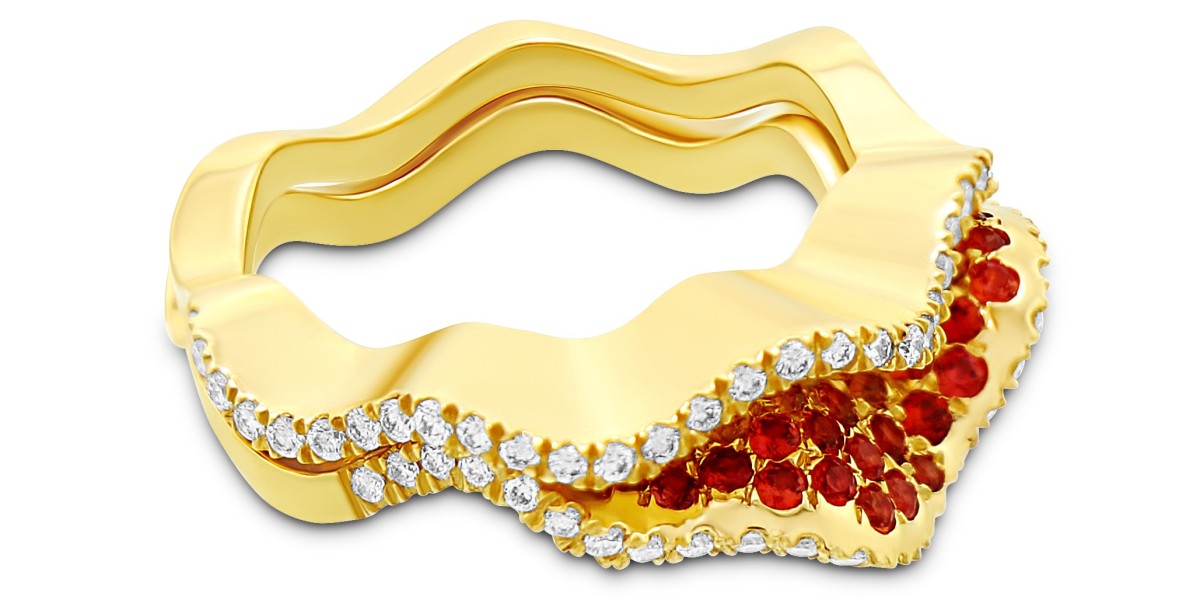Jewelry is not just an accessory; it’s an art form that embodies elegance, precision, and craftsmanship. However, when it comes to showcasing jewelry in photographs, even the most intricate designs can lose their impact if the details are not highlighted effectively. Detail enhancement in jewelry retouching plays a vital role in ensuring that every curve, sparkle, and texture shines through. This is especially crucial in today’s competitive market, where buyers rely heavily on visual appeal before making a purchase decision.
In this blog, we will explore why detail enhancement is pivotal in jewelry retouching, how it elevates the quality of images, and the techniques professionals use to achieve perfection.
Why Detail Enhancement Matters
1. Showcasing Intricacy
Jewelry often features delicate engravings, intricate patterns, or finely crafted gemstone settings. These details are the hallmark of the piece’s craftsmanship and must be highlighted in photographs. Without proper detail enhancement, such features might go unnoticed, diminishing the perceived value of the jewelry.
2. Creating Visual Impact
The primary goal of any jewelry photograph is to grab attention and make a lasting impression. Enhanced details help the image pop, captivating viewers and enticing them to explore further. Whether it’s the sparkle of a diamond or the texture of a gold chain, enhanced details amplify the visual appeal of the piece.
3. Building Trust with Buyers
High-quality images that showcase every detail of a jewelry piece instill confidence in potential buyers. When customers can see the craftsmanship and authenticity clearly, they are more likely to trust the brand and make a purchase.
4. Meeting E-Commerce Standards
Online marketplaces have strict standards for product images, especially for jewelry. Detail enhancement ensures that the photos meet these requirements, providing sharp, clear, and visually appealing images that stand out in crowded marketplaces.
Techniques for Detail Enhancement in Jewelry Retouching
1. Removing Imperfections
Even the most beautiful jewelry can have minor flaws such as:
- Dust particles
- Scratches
- Fingerprints
Using tools like the Spot Healing Brush or Clone Stamp Tool in Adobe Photoshop, editors meticulously clean up these imperfections. This ensures that the jewelry appears flawless and pristine.
Pro Tip: Always work at a high zoom level to spot and eliminate even the tiniest flaws.
2. Sharpening Fine Details
Sharpening is crucial for enhancing the edges of gemstones, metal settings, and intricate designs. Tools like the High Pass Filter or sharpening masks help bring out clarity and definition.
- Focus on Key Areas: Apply sharpening selectively to gemstone facets, metal edges, and engraved patterns.
- Avoid Over-Sharpening: Too much sharpening can make the image look harsh or artificial.
3. Enhancing Textures
Jewelry often has textured surfaces, such as brushed gold, hammered silver, or engraved patterns. Enhancing these textures adds depth and dimension to the image.
- Use the Dodge and Burn Tool to create subtle contrasts that highlight the texture.
- Adjust clarity and contrast to emphasize the unique characteristics of the material.
4. Highlighting Sparkle and Brilliance
Gemstones are the stars of most jewelry pieces, and their sparkle is a key selling point. Retouching ensures that the brilliance of gemstones is vividly captured.
- Dodge and Burn: Brighten highlights on gemstones while deepening shadows to create a three-dimensional effect.
- Add Subtle Flares: Use overlays or light effects to enhance the sparkle without making it look unnatural.
Pro Tip: Always refer to the actual piece or high-quality references to ensure color accuracy and natural sparkle.
5. Adjusting Color and Light
Lighting conditions during photography can alter the true color of gemstones and metals. Retouching corrects these discrepancies to ensure the image reflects the actual product.
- Color Correction: Use tools like Hue/Saturation or Color Balance to adjust the tones.
- White Balance: Ensure the color temperature matches the jewelry’s natural appearance.
6. Creating Consistent Backgrounds
A clean and consistent background draws attention to the jewelry and makes the details stand out. Clipping paths or masking techniques are used to isolate the jewelry and place it on a neutral or gradient background.
- White or Neutral Backgrounds: These are ideal for e-commerce platforms.
- Gradient Backgrounds: Add a touch of elegance for high-end brands.
7. Restoring Natural Features
Detail enhancement doesn’t mean over-editing; it involves restoring the jewelry’s natural beauty. This includes ensuring that the shape, texture, and proportions are preserved during the retouching process.
The Benefits of Professional Detail Enhancement
1. Increased Sales
High-quality, detail-rich images have a direct impact on sales. They attract more clicks, retain viewers' attention, and convert them into customers.
2. Improved Brand Reputation
Well-retouched images convey professionalism and attention to detail, which enhances the brand’s reputation.
3. Better Engagement on Social Media
Striking jewelry images perform better on social media, garnering more likes, shares, and comments.
4. Competitive Advantage
In a crowded marketplace, professionally enhanced images help a brand stand out and create a lasting impression.
Common Mistakes to Avoid in Detail Enhancement
- Over-Editing: Excessive use of filters or effects can make the image look artificial and reduce authenticity.
- Ignoring Natural Light and Shadow: Poorly balanced lighting can flatten the image.
- Neglecting Small Flaws: Even tiny imperfections can be glaring when the image is zoomed in by potential buyers.
- Inconsistent Backgrounds: A mismatched background can distract from the jewelry itself.
Conclusion
Detail enhancement in jewelry retouching is more than just a technical process—it’s an art form. By highlighting the craftsmanship, enhancing textures, and correcting imperfections, retouching transforms jewelry images into captivating visuals that sell. For jewelers, photographers, and e-commerce platforms, investing in professional detail enhancement is a smart move that drives customer trust, engagement, and sales.
Whether you’re a business owner or a photographer, working with a skilled retouching team ensures that every piece of jewelry shines in its full glory. At Color Clipping, we specialize in detail-oriented jewelry retouching, delivering stunning images that elevate your brand.
Let’s bring out the sparkle in your jewelry photos—contact us today!





